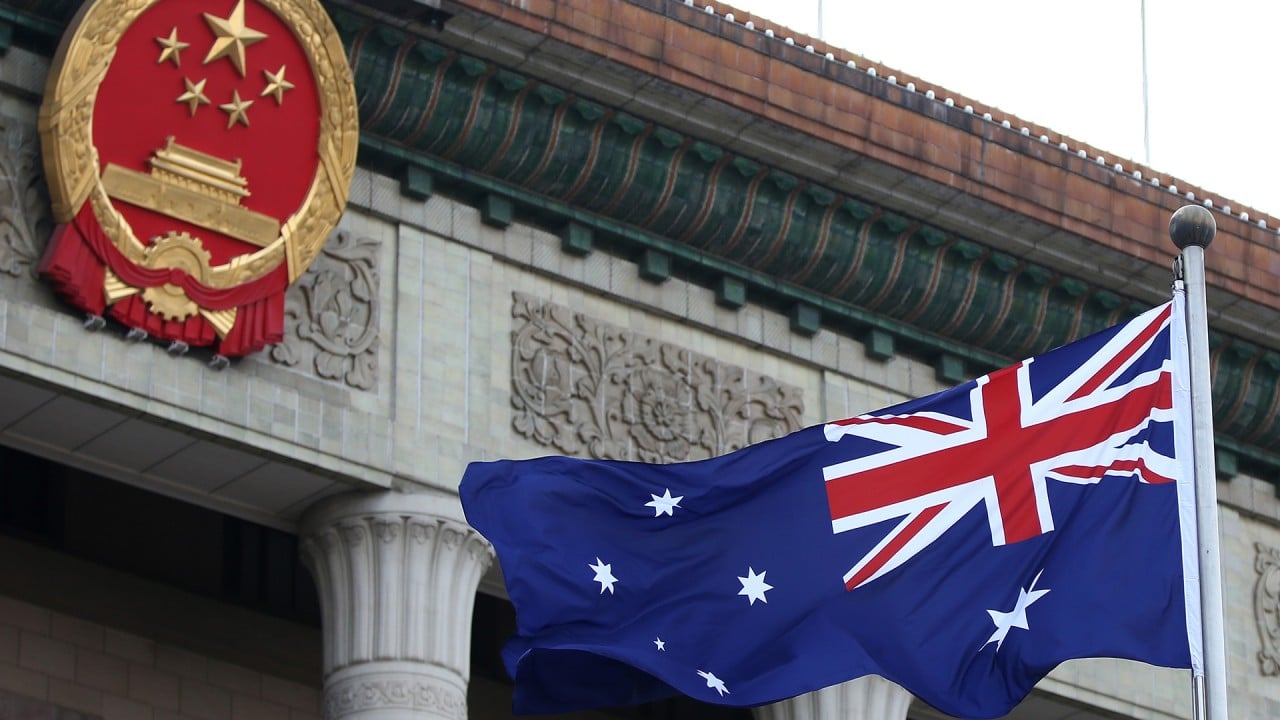
China-Australia relations: Canberra unwilling to ‘give up ground’ as value of iron ore exports rise
- The value of Australia’s iron ore exports – mainly to China – rose 14 per cent in October, although this is down to an increase in price rather than volume
- Australian treasurer Josh Frydenberg said that Canberra had not budged on its position and would not be ‘giving ground’ on China’s list of 14 grievances
The value of Australian iron ore exports to China rose again in October, but analysts expect overall trade between the two countries to wane over the coming months amid a worsening conflict.
The risks to overall trade continue to mount. Given the headwinds to exports we still think [Australian] import growth will outpace export growth in the coming months
“While exports to China increased in October, that was likely due to higher commodity prices. Coal exports fell in the month which may be a consequence of the rumoured restrictions from Chinese state-owned steel mills on Australian coal,” Capital Economics’ Australia & New Zealand economist Ben Udy said.
“The risks to overall trade continue to mount. Given the headwinds to exports we still think [Australian] import growth will outpace export growth in the coming months.”
Overall, Australia’s trade surplus rose to A$7.4 billion (US$5.5 billion), up A$1.6 billion from September. For China specifically, which buys around 42 per cent of Australia’s merchandise exports including iron ore, the trade surplus rose to A$4.7 billion from A$3.1 billion compared to October last year due to a 13.3 per cent year on year increase in exports of merchandise to China.
ANZ Research’s Hayden Dimes and David Plank agreed the negative trade landscape between Australia and China would have an impact on Australian exports.
Despite these threats, BIS Oxford Economics’ economists Rory Treadwell and Sean Langcake had a more positive outlook, especially since most of the headwinds were contained within a small part of Australia’s export basket.
Some rural goods exporters face an uncertain future and may need to pivot to other export markets
“The outlook for mining exports, which account for the majority of goods exports, is more sanguine. Crucially, Australia is an important supplier of steel making inputs. Import restrictions on these goods would be a large escalation in China‘s position and appear unlikely at this stage,” they said.
“Nevertheless, some rural goods exporters face an uncertain future and may need to pivot to other export markets.”
On Thursday, Australian treasurer Josh Frydenberg reaffirmed that Canberra had not budged on its position and would not “give ground” on China’s list of 14 grievances, despite concerns from the leaders of the leading iron ore-producing states of Western Australian and Queensland.
We are absolutely focused on ensuring that our exporters get access to a range of markets, not just Chin
“We are willing to engage in that dialogue with China, but clearly they have put out a list of grievances which we will not give ground on, so let’s just wait and see where things go,” he said in a radio interview with the Australian Broadcasting Corporation.
“From our perspective we are absolutely focused on ensuring that our exporters get access to a range of markets, not just China, we have been investing in opening up new markets with free-trade agreements with other countries as well as multilateral free-trade agreements.”
In a speech on Wednesday, West Australian premier Mark McGowan appealed to businesses and Australians at all levels to help repair the relationship with China, volunteering to assist the government in that effort.
On the same day, Queensland Premier Annastacia Palaszczuk also expressed the same concerns. saying mining states were growing anxious over the deteriorating relationship between the federal government and China.

07:55
Australia ditched diplomacy for ‘adversarial approach’ to China and ‘a pat on the head’ from US
She was particularly concerned with the number of Queensland coal ships stranded off the coast of China that have been stopped from clearing customs at Chinese ports.
On Thursday however, there were signs of improvement with sources saying China was clearing one shipment.
A cargo of 135,000 tonnes of Australian thermal coal on the vessel Alpha Era, which has been waiting almost six months to unload at the southern Chinese port of Fangchenggang, is expected to clear customs, sources told Bloomberg.
Two other ships, the Dong-A Eos and the Dong-A Astrea, recently completed unloading Australian coal at the port of Jingtang, while a third vessel, the Dong-A Oknos, is in the process, according to data intelligence firm Kpler, but it was not clear if they would clear Chinese customs.
The prices and demand of coal in China will determine the pace at which Australia coal will be let in, according to Kpler.
Last month, China dialled up the amount of imported seaborne coal through quotas. It adjusted its quota by 20 million tonnes to meet local demand and a shortage in local coal supplies, although that quota was only extended to non-Australian coal.

